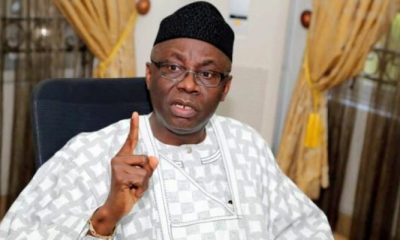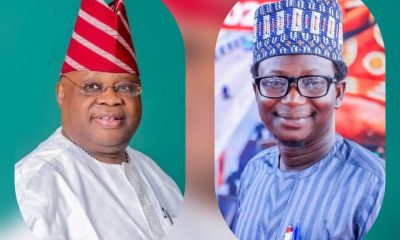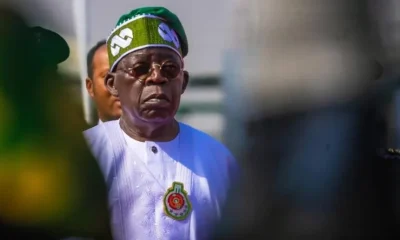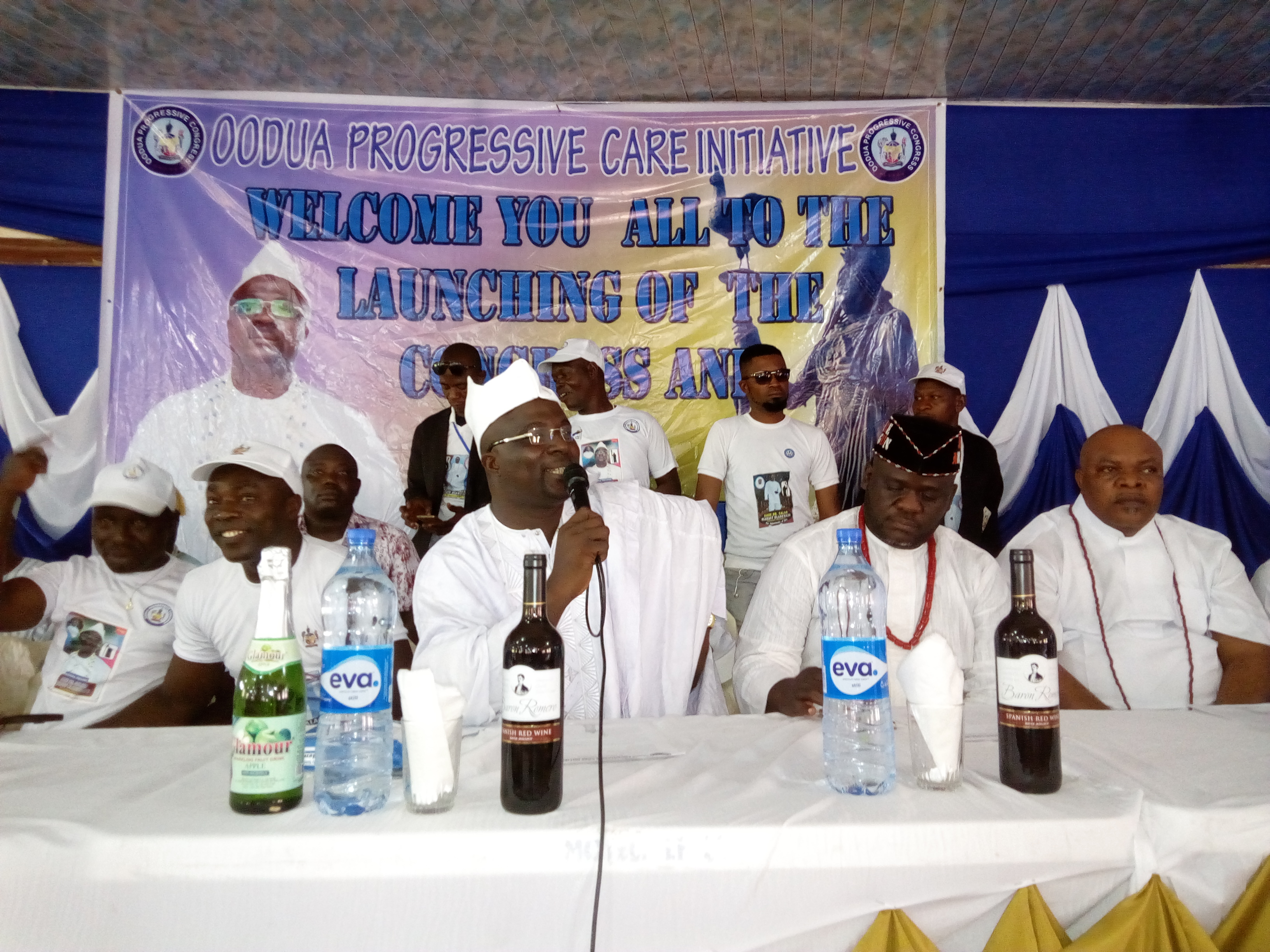News
Tinubu: A Marathoner At Work By Kunle Oyatomi

It is becoming unmistakably clear that the man Nigerians elected last year, as their president is a calculating politician in the mold of a marathon racer. He bides his time to throw in policies that, although are products of the challenges of today, yet are designed to win the future and prevent the present from giving birth to a weak society and attendant fragile citizenry and institutions. Let us meanwhile, bear in mind that the messy today we are complaining about itself is the future that emerged from a yesterday which was not decisively attended to.
Most of us believe that President Bola Ahmed Tinubu is also working on that principle of working out solutions today that would deliver a better tomorrow. The athlete running a marathon, like the ancient Greek sportsman, is not focused on a short-term victory like a sprinter does. He positions himself for the results and rewards of a long haul. In other words, he is looking at tomorrow; he is a strategist determined to deal with the problems of his people once and for all, so as not have a negative future waiting for them.
On the other hand, short distance competitors go for short-lived victories.
We have to understand our president from this track-field background revealing the differences between a sprinter and a long-distance performer. Otherwise we would miss Tinubu’s mission and vision and in the process, fail to appreciate the man and his work.
Take his abolition of the fuel subsidy as a point of our study of Tinubu as a man of the future. His argument, shared by most economists and even those in the opposition political parties, is that removing the subsidy would bring about present headache and discomforts. But if we are patient and endure today, we are certain to laugh last in the years ahead as we harvest the gains of critical infrastructure to be provided from the subsidy savings.
The subsidy used to be exploited by only a few in the country, but with Tinubu’s intervention there will be savings to be used to prepare for a prosperous future. I believe it is an acceptable deal, even if it is coming with some sacrifice on the part of the masses. It is a bitter pill that must be swallowed to cure an ailment that has lingered over the decades.
Our leaders in the past have always shied away from using the heavy sledgehammer to face our problems, preferring not to apply drastic measures. But that has always created a problematic tomorrow. Now, tell me, is it not better to endure a bitter today in order to make way for a better and sweeter tomorrow? I do not think it would take us much time to arrive at a ‘Yes’ for our answer.
The same outcome waits for us as we look at the question of the flotation of the naira. The short-term approach would be to resist the temptation to leave our currency to be ‘pampered’ by government. Many are worried that floating the naira has left it battered and devalued, and thus rendered the Nigerian economy weakened. They say all this has made our economy to shrink.
This is not at all supported by the findings of international experts and analyses from local conditions. For instance, the respected World Bank says our economy has been enlarged and is set to grow by 3% in 2024. Two of the world’s biggest financial adjudication firms, Moody’s and Standard and Poor’s have upgraded us from a low rating. The experts have looked at the books and their verdict is that Tinubu’s policies have made our Stock Market one of the ‘best’ performers in the world. The case they are making is that the Administration of Bola Tinubu is on the right track, and given some time, the country will not only escape from the depression loop, but also enter into the growth and development era.
Experts have referred to countries like Brazil and Vietnam which experienced economic doldrums like us in recent times. They overcame the situation by ‘weakening’ their currency, a step that forced the citizens to adopt the path of production instead of consumption of foreign goods.
But going to Asia and South America is too far. Let’s go to Ghana, right here in our own West Africa. In the 80s, when the Ghanaians faced serious challenges and all the world expected the nation to collapse, the military regime of Jerry Rawlings took to measures that were unpalatable. The charismatic Air Force officer resorted to financial and economic decisions that undervalued the cedi, the Ghanaian currency. He stopped the dependence on imports and luxury consumption. Rawlings worked more on local productivity and less on foreign goods. Of course, it brought a lot of hardship, which Rawlings described as a ‘’bitter pill’’ needed to cure the land. It turned out an effective therapy, because by the mid-90s, the land of the Black Star had bounced back. All what the people of Ghana did was to support Rawlings’ policies and wait for a few years to endure the accompanying pain. Indeed, the Rawlings’ era has not been equaled in terms of fiscal and political discipline by any of his successors.
I also see in Tinubu’s administration the gradual unravelling of a policy that suggests that he has his eyes on giving Nigeria a crisis-free future whose foundation is being laid in the present. He would need to dismantle an old order and mindset which have existed for ages. Naturally, fixed structures would have to crumble and this would hurt not a few, as it happened in Ghana under Rawlings. But it is a pill that must be swallowed or chewed for lasting relief.
Oyatomi, a lawyer is a member of Independent Media & Policy Initiative, IMPI, Abuja.
-

 News4 days ago
News4 days agoFIRAT Offers USD 200,000 SnapGenius Research Facility To Boost Research Excellence In African Universities
-

 News5 days ago
News5 days ago2026 World Hijab Day: Osun Muslim Women Decry Discrimination, Demands Protection Of Hijab Rights
-

 News4 days ago
News4 days agoPolice Commence Investigation As Worshiper Mobbed To Death At Osogbo Central Mosque
-

 News4 days ago
News4 days agoPensioners Threaten Legal Action Against States Over Unpaid Pension Increases, Outstanding Entitlements













